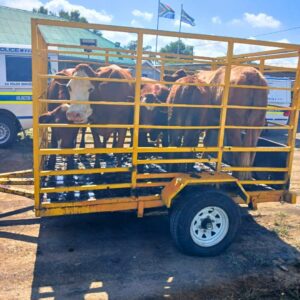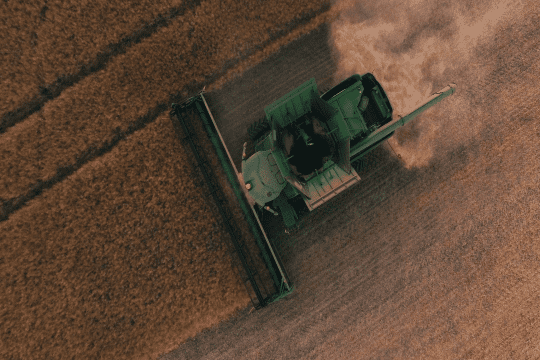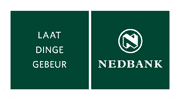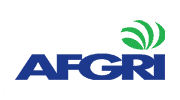

Free State Agriculture’s annual congress, which will be presented on 3 & 4 August 2022, will focus on the viability of the agricultural industry. According to Francois Wilken, Free State Agricultural President, the changing international and local conditions confront the agricultural community with new challenges.
Greater international price fluctuations, de-globalization and growing tensions between powers have a direct impact on primary industries such as agriculture. “The local conditions also do not make the operating environment easier, and we are increasingly seeing that factors that are outside agriculture’s direct control affect the industry’s viability.” says Wilken.
The agricultural industry remains the key player in ensuring economic growth, job creation and food security in the country. Therefore, FSA’s strategic goal is to see the agricultural industry grow as a whole.
In order to formulate a strategy, FSA therefore highlighted 6 important areas that affect the local viability of the agricultural industry. These are also the factors that, according to the organization, determine the growth of the agricultural sector in SA:
1) Rural / Agricultural Development – Property law, Land reform policy direction and accountability of inefficiencies in state administration, e.g. in terms of biosecurity (animal diseases and hygiene that are key to facilitating exports) and law enforcement and implementation and renewal where necessary
2) Safety and Security (Livestock theft, theft and vandalism of farm infrastructure, farm attacks, railway infrastructure theft and vandalism)
3) Infrastructure (rural roads, communication networks, reliable electricity supply, water, irrigation infrastructure and water rights allocation, ports, railway systems and plans for manganese trucks)
4) Profitability – influence of international politics and impact on export markets and rising farm input costs.
5) Involvement of Young Farmers (to train the new generation of agriculture and rural community leaders)
6) Empowerment of agricultural associations (to get members purposefully involved in the ground level structures of Agricultural Association)
From the above factors, it is clear that many of agriculture’s challenges are external in nature. On the one hand, it testifies to agriculture’s ingenuity in overcoming industry-specific challenges. Furthermore, it also points out that agriculture cannot be isolated from the socio-political challenges and must become more active in relationships within communities.
Therefore, during its Annual Congress, FSA will have a special session on the empowerment of its grassroots structures, namely the agricultural associations, on how to address the core issues of building resilient economically sustainable farming and vibrant local communities.
Vrystaat Landbou se jaarkongres wat op 3 & 4 Augustus 2022 aangebied word, gaan fokus op die lewensvatbaarheid van die landboubedryf. Volgens Francois Wilken, Vrystaat Landbou President, konfronteer die veranderende internasionale en plaaslike omstandighede die landbougemeenskap met nuwe uitdagings.
Groter internasionale prysskommelinge, die de-globalisering en groeiende spanning tussen moondhede het direkte impak op die primêre bedrywe soos landbou. “Die plaaslike omstandighede maak die bedryfsomgewing ook nie makliker nie, en sien ons toenemend dat faktore wat buite landbou se direkte beheer is die bedryf se lewensvatbaarheid beïnvloed.” sê Wilken.
Die landboubedryf bly die kern rolspeler om ekonomiese groei, werkskepping en voedselsekerheid in die land te verseker. Daarom is VL se strategiese doelwit om die landboubedryf in sy geheel te sien groei.
Ten einde ʼn strategie te formuleer het VL daarom 6 belangrike areas wat die landboubedryf se plaaslike lewensvatbaarheid beïnvloed uitgelig. Hierdie is ook die faktore wat volgens die organisasie die groei van die landbousektor in SA bepaal:
Uit die bogenoemde faktore is dit duidelik dat baie van landbou se uitdagings ekstern van aard is. Aan die eenkant getuig dit van landbou se vernuf om bedryfs-eie uitdagings te oorkom. Aan die anderkant wys dit ook daarop dat landbou nie geïsoleerd kan wees van die polities-maatskaplike uitdagings nie en meer aktief moet raak in verhoudings binne gemeenskappe.
Daarom sal VL tydens sy Jaarkongres ʼn spesiale sessie hê oor die bemagtiging van sy grondvlakstrukture, naamlik die landbouverenigings, oor hoe om die kern kwessies aan te pak om veerkragtige ekonomiese volhoubare boerdery en lewendige plaaslike gemeenskappe te bou.










Ⓒ 2024 Vrystaat Landbou All rights reserved | Website by BrandNew